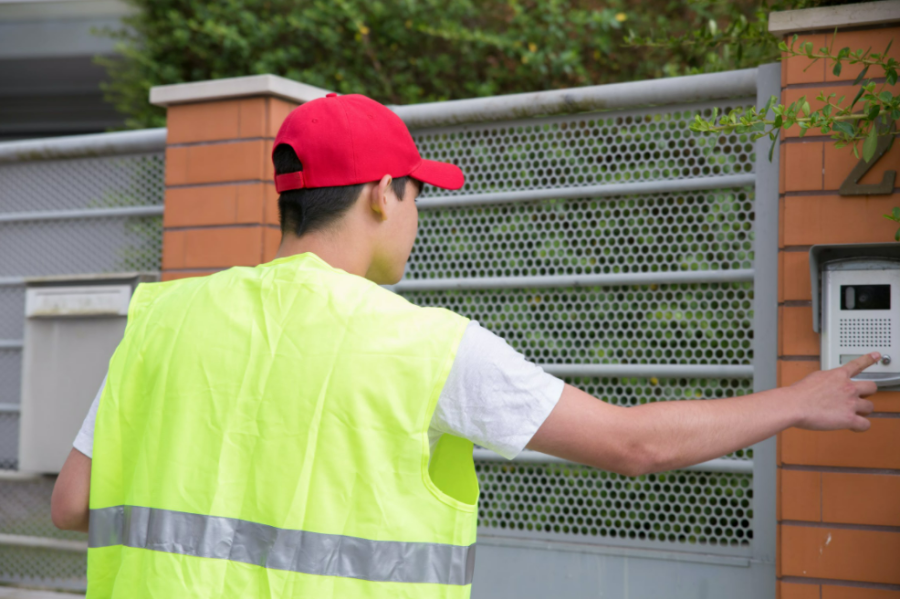
Having home security is key to feeling safe and making your property less likely to get broken into. While you cannot entirely predict whether your home will be broken into or not, you can reduce the risk by having a security system put in place. Do you need an alarm system for your home? Not everyone feels like they do, but by looking at some risk factors, you can make a more informed decision. Use this guide to help you determine if this type of system is right for you.
You Live Alone
If you live alone, your home is likely vacated for several hours a day when you are gone for work or school. The lack of a vehicle in the driveway or a barking pet or other sign of habitation can make your home more vulnerable to a break-in.
If you want to feel safer, talk to a security company about an alarm system. An alarm system will sound off if someone tries to get into your home without using the security code, and the right system will even alert the local authorities in the event of a suspected break-in if the alarms go off.
You Travel a Lot
Does your family have a busy life outside the home? Do you travel in the summer or spend several hours a day away from the house with school, sports activities, and other events? If so, your house can give the impression that you are never home, which makes your property a key break-in potential.
An alarm system can be linked to a smartphone or other device so you can check on your home periodically when you are away. This peace of mind allows you to know any activity that goes on around or near your house so you can keep in touch with how safe your home is. Many systems even allow you to turn the lights on and off remotely or on a timer so that your home looks inhabited, even when you’re not there.
You Live in a Vulnerable Neighborhood
Some areas are just more crime-ridden than others. If you live in a neighborhood that gets more burglaries and vandalism than other parts of your town, or your street doesn’t have a lot of natural security—such as a gated community or street lights—then it’s wise to invest in an alarm system just in case.
An alarm system company can install stickers and signs around your property letting would-be criminals know your home is professionally protected with state-of-the-art security. In some cases, all it takes is a sign announcing your house has an alarm system to let a burglar know that your property should be left alone. Visible cameras or motion detectors can also be convincing deterrents that help protect your home.
Protecting your home with a security system keeps you informed of who is around the home no matter where you are. When you’re considering a home security system, you also need to know how much it’s going to cost. Many security companies offer a selection of premium add-ons from convenient mobile access to quality live feeds that provide 24/7 coverage. By choosing the features and equipment you need, you can make sure you’re not paying more than you should be. In general, security packages can range from $15 a month to upwards of $100 depending on the features and equipment you select. Here’s a breakdown of costs to consider when securing your home.
Monitoring Packages and Services
The services you choose can increase your monthly costs tremendously. For packages including security cameras, carbon monoxide detectors, window sensors, and nanny cameras, you could be paying up to an extra $100 a month. Most systems cost at least $15 a month with add-ons boosting the price significantly. When first signing on with a security company, outfit your home with only the necessities before considering more expensive luxury options.
Physical Equipment
You’ll likely also pay a monthly fee to rent the equipment. Similar to internet modems, a small fee will be added to your monthly bill. The standard window sensors, control panel, and alarm siren are all traditional home security features typically packaged together. Depending on the number of add-ons you combine with a regular package and the type of monitoring you prefer, you’ll see your monthly bill increasing on top of the basic package fee.
Installation and Monitoring
The installation of a new home security system will cost the most upfront. Hardwiring a system is the most expensive and works well for those who live in rural areas. Wireless is the more common option as it can typically be done at home by yourself and doesn’t need any wires physically installed in the home. When contacting a security company, they’ll run you through the best options based on your unique home needs.
Ways to Save
The cost of home security shouldn’t scare you off from protecting your house and family members. You can save money by installing your security system yourself or inquiring about provider deals. Many companies will offer discounts if you sign a contract for a minimum length of service. Your homeowner’s insurance company may also offer lower premiums, which can help to minimize the impact of the system’s monthly operation bill.
Your home should be as secure as possible to keep your family and belongings safe from intruders, natural disasters, and every other event out of your control.
